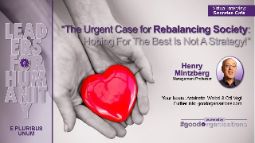
Join our upcoming Leaders for Humanity interviews!
(and find all previous recordings below)
The next #LeadersforHumanity YouTube Premiere will commence in...
12
Days
:
01
Hours
:
52
Minutes
:
52
Seconds
02 September
Gert Biesta,Professor of Public Education, Maynooth University, Ireland
Reinventing Education:A Life-long Quest Of Becoming Truly Human
In this fascinating interview with Gert we cross the bridge towards the fascinating world of education. If a modern organisation, so we ask, has an educational or emancipative purpose, how could that be operationalised. Gert, one of the most renowned educational philosophers today, explains the difference between "Bildung" and "Erziehung" and draws upon post-structuralist thinking to develop his theory of "subjectification". From there, we explore what it means to teach - and potentially to "lead" - and how to enable civic and lifelong learning.
26 August
Mike O’Donnell,Professor Emeritus of Sociology, University of Westminster (UK)
Beyond the Crisis of Neoliberalism: Towards Institutional and Economic Democracy
In this interview with Mike we seek to understand the changing political landscape for good organisations. What are the deficiencies of modern democracies and hence the challenges for creating a "good society"? What are some of the solutions? And how can modern organisations responsibly position themselves as organisms of society - what does it mean to accept "corporate responsibility" for societal issues, and how would democratic and institutional systems be reflected in the "corporate setup"?
19 August
Mats Alvesson, Professor of Organisational Studies at Lund University School of Economics and Management
Fixing Organisational Transformation: Functional Stupidity and the Perils of Leadership
We had a brilliant, eye-opening and thought-provoking dialogue with Mats about critical management studies and the danger of some of the most popular, simplistic discourses and metaphors in economic science. We explored the "triumph of emptiness" of modern life, the challenges of hegemonic ambiguity of leadership and identity, functional stupidity and what we can learn from practical studies about organisational culture change.
15th July
Luigino Bruni, Professor of Political Economy and Coordinator Of The PhD Programme for Civil Economy at LUMSA University, Rome
How Capitalism Lost Happiness: Healing Our Relationships To Heal Our World
What is the meaning of happiness in economics? How does it link to wealth, and utility? How has anglo-saxon capitalism turned from a search for pleasure to the maximisation of profit, and into an "immunization device against the wound of the other”? What can we learn from religion and “sacred” organisations? Join us for a fascinating dialogue across disciplines and history!
8 July
Jane Dutton, Distinguished University Professor Emerita of Business Administration and Psychology at the University of Michigan. Monica Worline, CEO of Enliven Work
Positive Organisational Scholarship: From Suffering to Flourishing!
A journey of discovery into the insights of "POS": what makes our organisations "positively deviant"? What is the meaning and relevance of flourishing at work, and how can we generate it? How to enable compassion in finance, or generosity in budgeting? Join us for a stimulating exploration with two extraordinary and wonderful guests...
1 July
Frank Martela,Philosopher and Researcherof Psychology
Re-enchanting Our Organisations: Making Work Meaningful
A deep dive into the relevance of meaning and its application to work. Applying pragmatism and self-determination theory, what can we say about the "good life" and "good organisations"? Frank has looked at the questions both from philosophy and psychology and is sharing with us some - unsurprisingly pragmatic - answers...
24th June
Alan Watkins, CEO Complete
Spiral Dynamics Continued: From Democracy towards Crowdocracy
Alan Watkins is former physician and neuroscientist and CEO of a leadership development consultancy. He has authored 10 books, including a collaboration with Ken Wilber. Building on "spiral dynamics" and "integral psychology", we will (critically) deep dive into the coherent development of individuals, organisations and society - exploring Alan's stimulating ideas about "crowdocracy", waves of evolution in HR, and 4D Leadership.
17th June
Ed Freeman, Philosopher and Professor
of Business Administration
The Tipping Point: Can Stakeholder Theory Save Our Planet?”
There is much discussion about "stakeholder capitalism" and a more responsible way of doing business. Ed Freeman is one of the most prominent forefathers of stakeholder theory and explores with us how a positive new narrative - building on philosophical pragmatism - can enable a global transformation. A session not to be missed!
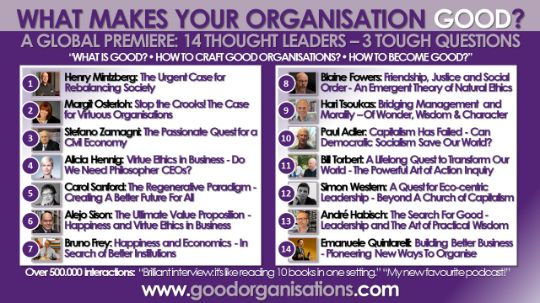

Henry is an outspoken critique of today’s "Corporate Society", advocating instead a Rebalanced Society which is — in his own words — made up of “a public sector of political forces rooted in respected governments, a private sector of economic forces based on responsible businesses, and a plural sector of social forces manifested in robust communities”.
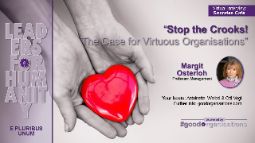
Leaders for Humanity with Margit Osterloh: Stop the Crooks! The Case for Virtuous Organisations
In our interview Margit clarifies why shareholder capitalism is not sufficient; the importance of institutional ethics and how dialogue needs to be embedded in an institutional framework — touching on the relevance of power and procedural fairness; the difficulty to maintain corporate commons in large businesses; what we can learn from Athenian democracy and monasteries; and why academia has often abandoned the right path.

Leaders for Humanity with Stefano Zamagni: The Passionate Quest for a Civil Economy -Of Markets, Money and Morality
In our interview Stefan explains the paradigm of the “Civil Economy”, building on early European and Italian Economic theory, Christian values and the work of many renowned economists and political science researchers — from Amartya Sen to Elinor Ostrom, Joseph Stiglitz to Robert Putnam and many others.
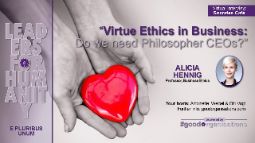
Leaders for Humanity with Alicia Hennig: Virtue Ethics in Business - Do We Need Philosopher CEOs?
In our interview, we especially focus on business ethics as a discipline, comparing notions of virtues across philosophical systems and touching on Confucianism and Daoism; and we also looked at modern organisational models like “Rendanheyi” in Haier — whilst touching on Alicia’s personal experience of living in China.

Leaders for Humanity with Carol Sanford: The Regenerative Paradigm - Creating A Better Future For All
In our interview, we explore Carol’s perspective on paradigms and critical thinking, on the concept of “regenerative business” and how organisations can transform, and her thoughts on “nodal roles” that we can all adopt in our lives to enable positive change. Carol is convinced that all progress starts with eduction: when we start to truly adopt a “living system” paradigm, our lives and businesses will develop.
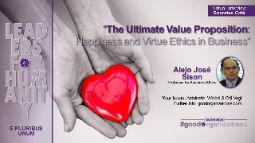
Leaders for Humanity with Alejo Sison: Happiness and Virtue Ethics in Business
Virtue ethics has been around for more than two millennia. Until recently confined mostly to tedious academic seminars or discourses between catholic priests, Aristotle's theory today is living a veritable renaissance. We discuss with Alejo how virtues have become a credible proposition for modern business, what we can learn from MacIntyre's After Virtues, and what it means to build a "common goods company".

Leaders for Humanity with Bruno Frey: Happiness and Economics
In our interview with Bruno we move beyond organisations and ethics to investigate public choice theory, the relevance of happiness in Economics and the importance of institutions. Bruno extends economics beyond standard neo-classics by including insights from other disciplines — like political science, psychology and sociology — and advances a number of highly innovative suggestions.

Leaders for Humanity with Blaine Fowers: An Emergent Theory of Natural Ethics
In our interview we had an intriguing dialogue about Blaine’s in-depth investigation into evolutionary theory seeking to bring Aristotle’s notion of “essentially human” excellence to live. Moreover, his research and teaching combines insights from psychology and philosophy — especially virtue ethics - to further enrich our understanding of how to lead a “good life”, at and beyond work.

Leaders for Humanity with Hari Tsoukas: Bridging Morality and Management
In our interview, we discuss with Hari the connections between ethics, organisations and leadership — investigating into multiple theoretical and philosophical perspectives on organisations-as-institutions, the relevance of strategy as a virtuous process, the importance of reflection-in-action, business ethics, and dialogic approaches to knowledge creation and system thinking.

Leaders for Humanity with Paul Adler: Capitalism Has Failed- Can Democratic Socialism Save Our World
In our interview, we discuss with Paul the symptoms of the 99% economy and explore how can we learn from both past and present to mitigate the crises of neoliberal capitalism; we review modern “high ground” organisations like Kaiser Permanente and deep dive into the configuration and challenges of a highly participative “strategising” process; and learn why bureaucracy will not disappear any time soon. Finally, based on his extensive inquiry into both political and organisational theory and practice, Paul develops his alternative model of democratic socialism.
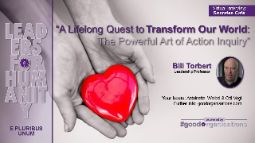
Leaders for Humanity with Bill Torbert: The Powerful Art of Action Inquiry
In our interview, we discuss with Bill how to practice “action inquiry” in order to transform ourselves individually and collectively, and become good leaders of ourselves and others. We review the “action logics” - Bill’s framework for the development of mental paradigms, and investigate how organisations and academia can contribute to increase our capacity to reflect and act wisely. And we also hear about Bill’s ontological perspective on science and the nature of time — a session not to be missed!
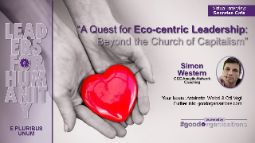
Leaders for Humanity with Simon Western: A Quest for Eco-centric Leadership
In our highly stimulating interview, we discuss with Simon the implications of critical management theory and his research in social movements, his in-depth revision of salient historical leadership discourses and the challenges with new and systemic leadership approaches. Building on Simon’s personal experience we also centred on the relevance of psychodynamics and morality, and the opportunity to re-enchant our work and lives.

Leaders for Humanity with André Habisch: Leadership and The Art of Practical Wisdom
In our fascinating discussion, we explored with André the institutional and cultural embeddedness of entrepreneurship — focussing especially on the role of entrepreneurs in Germany’s post-war period, as well as the outstanding success of the German Chambers of Commerce and its vocational apprenticeship model. Moreover, we reviewed concept and importance of practical wisdom in leadership development, as well as the role of religion and spirituality in a“good life” - and discussed whether moral norms are in contradiction with modern pluralism.
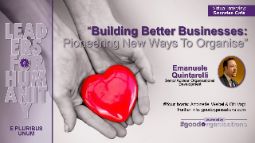
Leaders for Humanity with Emanuele Quintarelli: Pioneering New Ways To Organise
There is much discussion about new models for modern non-bureaucractic organisations - from holacracy and sociocracy to adhocracy, humanocracy, agile and Rendanheyi. With Emanuele we will seek to disentangle these new and diverse forms and explore how they link to ethical design principles, as well as discuss the maturity and limits of their application.
OUR BIG THANKS GO TO ALL OUR PARTICIPANTS: HENRY MINTZBERG, MARGIT OSTERLOH, STEFANO ZAMAGNI, BILL TORBERT, ALICIA HENNIG, BLAINE FOWERS, BRUNO FREY, PAUL ADLER, EMANUELE QUINTARELLI, SIMON WESTERN, CAROL SANFORD, ANDRE HABISCH - thank you all very much for sharing your personal wisdom!
Additional materials:
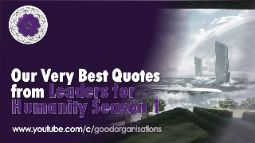
THE VERY BEST QUOTES FROM SEASON 1
Our selection of insightful and inspirational quotes from all the 14 interviews in Series 1.

LAUNCHING GCORPS - WHY THE NEW "TEAL" IS PURPLE (TATW SUMMIT 2022)
At the global "Teal Summit" 2022 we present our latest thinking about a new theory of Good Organisations. At its core is a new purpose for better business: "GoodOrganisations seek to develop our highest human potential in support of the good life and sustainable prosperity of all – carefully developing organisational routines that enable meaningful work, generative and co-elevating communities, sustainable products & services."
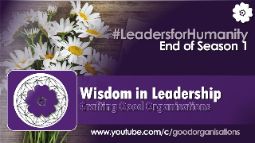
WISDOM IN LEADERSHIP (ECO-LEADERSHIP INSTITUTE)
At Simon Western's Eco-Leadership Institute we briefly present our current thinking about a new theory of leadership development, focused on practical wisdom. We seek to integrate traditional skill development, psychodynamics and cognitive development, as well as moral development.
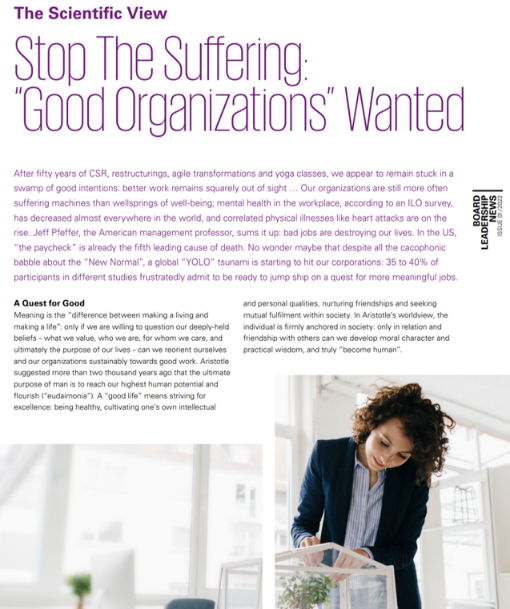
KPMG Board Leadership News 01/2022: The Scientific View. Stop The Suffering: “Good Organizations” Wanted
We have formulated initial hypotheses about “Good Organisations” and “Good Leadership”, building on many of the discussions during our Leaders of Humanity Season 1 interviews.Some of our thinking was picked up by others, including Haufe Group and KPMG.
29th Apr
THE EVOLVING NARRATIVE
Launching gCorps - Why the New "Teal" is Purple
"#GoodOrganisations seek to develop our highest human potential in support of the good life and sustainable prosperity of all – carefully developing organisational routines that enable meaningful work, generative and co-elevating communities, sustainable products & services."
22nd Apr
Emanuele Quintarelli,Senior Advisor for Organisational Development
Building Better Businesses:Pioneering New Ways To Organise
There is much discussion about new models for modern non-bureaucractic organisations - from holacracy and sociocracy to adhocracy, humanocracy, agile and Rendanheyi. With Emanuele we will seek to disentangle these new and diverse forms and explore how they link to ethical design principles, as well as discuss the maturity and limits of their application.
15th Apr
André Habisch, Professor of Social Ethics
The Search For Good: Leadership and The Art of Practical Wisdom
We will discuss with André how leaders can act with practical wisdom, but even more expansively how the socio-economic and institutional context in any given country or territory can foster ethical "responsible merchant" behaviour of entrepreneurs and businesses. André recently wrote an intriguing book on German chambers of commerce and has deep insights into the evolution of post-war German society and economy.
8th Apr
Simon Western,CEO Analytic-Network Coaching
A Quest for Eco-centric Leadership: Beyond the Church of Capitalism
We will talk to Simon about his analysis of leadership discourses and the development of a new inspirational "eco-leadership paradigm" - touching on Simon's research about critical theory and social movements, his personal experiences in both public health and therapy, as well as his own coaching approach based on system psychodynamics.
1st Apr
Bill Torbert, Professor of Leadership
A Lifelong Quest to Transform Our World:The Powerful Art of Action Inquiry”
How can we transform individually and collectively, and how can become good leaders of ourselves and others? Bill has studied individual and organisational development for many decades and developed a compelling theory of "action inquiry": how to continually progress our ability to reflect on ourselves, our relationships and our actions to expand our potentiality. Unique, radical and thought-provoking: a session definitely not to be missed!
25th Mar
Paul Adler, Professor ofManagement
“Capitalism Has Failed:Can Democratic Socialism Save Our World?”
Are we on our way towards a 99% economy that caters only to a 1% elite? And, if so, how can we learn from past and present to mitigate the crises of neoliberal capitalism? Based on his extensive inquiry into both political and organisational theory and successful participatory organisations, Paul develops a powerful alternative model of democratic socialism.
18th Mar
Hari Tsoukas, Professor of Organization Studies
Bridging Morality and Management:Of Wonder, Wisdom And Character
Hari has written extensively about organisations and leadership - investigating into multiple theoretical and philosophical perspectives, and seeking to apply his insights in education and practices. We will explore the relevance of strategy as a virtuous process, the understanding of organisations as practice-in-institution, ethics in management, dialogic approaches to knowledge creation and system thinking.
11th Mar
Blaine Fowers, Professor of Philosophical Psychology
Friendship, Justice and Social Order:An Emergent Theory of Natural Ethics
Diving once again into the question of business ethics we are talking to Blaine about learning from psychology and evolutionary theory. Blaine has taken the "functional argument" in Virtue Ethics further and investigated in detail what makes humans human - to answer the question how we can become our very human best...
3rd/4rd Mar
TEAL AROUND THE WORLD SUMMIT 2022
THURSDAY - MEET THE MAVERICKS
FRIDAY - United for Good: WHY THE NEW TEAL IS PURPLE
At this year's Teal Summit we will have the pleasure to present our latest thinking about an emergent narrative and model for next generation good organisations. Also, we will have the pleasure to again meet Henry Mintzberg and Ricardo Semler to talk about The Future and Work and Rebalancing Society. Join us for the show!
25th Feb
Bruno Frey, Professor of Economics and one of the most cited economists in Europe
Happiness and Economics: In Search of Better Institutions
Moving beyond organisations and ethics, we are investigating public choice theory, the relevance of happiness in Economics and institutions. Bruno has covered many diverse aspects in his research and advances a number of highly innovative suggestions.
18th Feb
Alejo José Sison,Professor for Business Ethics
The Ultimate Value Proposition:Happiness and Virtue Ethics in Business
Virtue ethics has been around for more than two millennia. Until recently confined mostly to tedious academic seminars or discourses between catholic priests, Aristotle's theory is living a veritable renaissance. We will discuss with Alejo how virtues have become a credible proposition for modern business.
11th Feb
Carol Sanford, Senior Fellow of Social Innovation at Babson College
The Regenerative Paradigm: Creating A Better Future For All
Everything starts with education, Carol will argue in this stimulating dialogue about critical thinking, mental paradigms, and - above all - a regenerative perspective on personal, organisational and ecosystemic development. Carol will challenge much of traditional wisdom - a session not to be missed!
4th Feb
Professor in Business Ethics with a focus on applied philosophy and expert in eastern philosophy
“Virtue Ethics in Business:Do we need Philosopher CEOs?”
Our postmodern society seems to be craving for greater focus on values, especially in business and politics, but guidelines from many philosophers about how to implement more ethical societies or organisations remain scattered. We will discuss with Alicia how business ethics compare across cultures and especially how to look at morality from Eastern and Western perspectives.
28th Jan
STEFANO ZAMAGNI, PROFESSOR OF ECONOMICS AND EXPERT ON CHRISTIAN SOCIAL TEACHING
The Passionate Quest for a Civil Economy: Of Markets, Money and Morality
We will discuss with Stefano how to craft a Civil Economy, what it means to be a responsible organisation, what role cooperatives can play and why business schools have failed.
21st Jan
MARGIT OSTERLOH, management professor and political thought leader
Stop the Crooks! The Case for Virtuous Organisations
We will discuss with Margit how to improve corporate governance by random selection, the risks of crowding out of intrinsic motivation, and the challenges of academic management
14th Jan
HENRY MINTZBERG, WORLD-FAMOUS MANAGEMENT rebel and professor
The Urgent Case for Rebalancing Society: Hoping For The Best Is Not A Strategy!
We will talk to Henry about his book "Rebalancing Society", his views on management and managers, organisations, and societal change
All website content is currently DRAFT: Please share any feedback and/or flag any errors via the content form. Important: All rights related to images or content created by others that are hosted on this site remain with their respective authors. In case of any undue usage please get in touch. © 2021 All rights related to proprietary content reserved
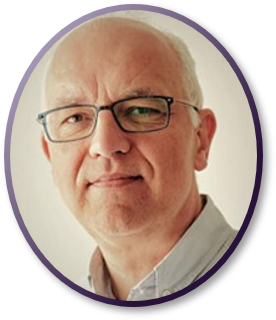
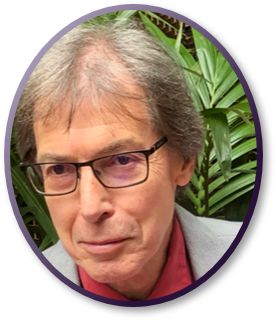
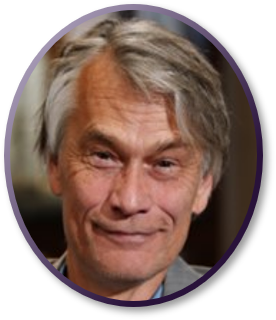

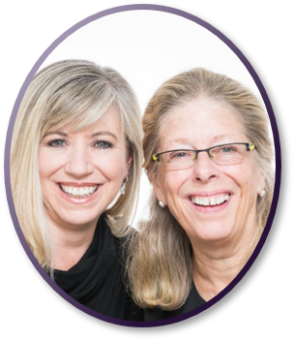


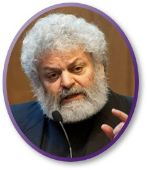
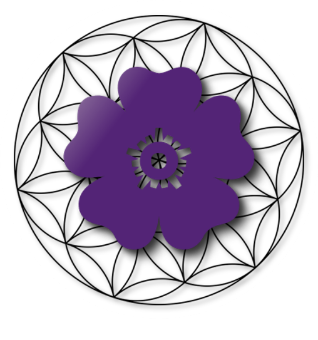
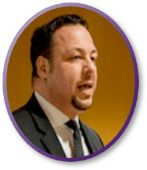

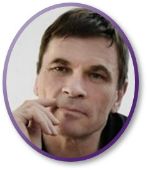


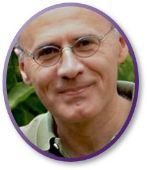
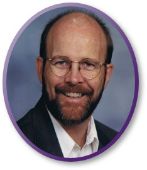
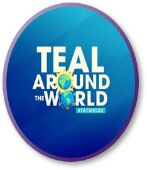
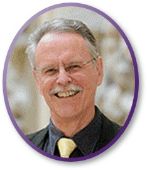
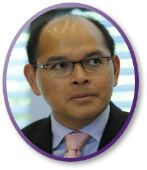

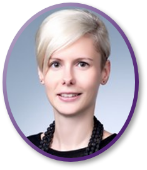
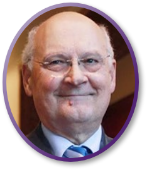
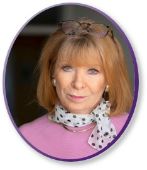
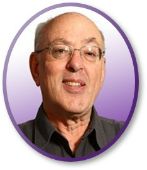
 .
.